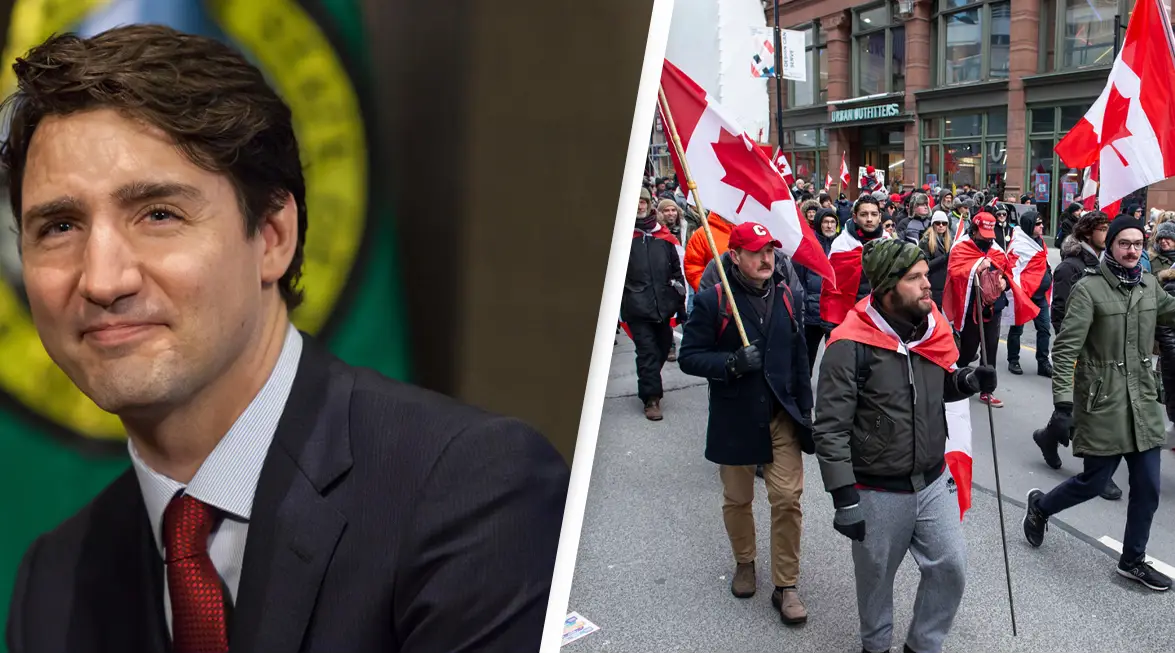Canada has revealed plans to freeze the bank accounts of anti-vaxxers as a result of a series of unlawful protests that have been taking place around the country.
As protests have entered their third week, Prime Minister Justin Trudeau has invoked the Emergencies Act.
This means that a court order will no longer be needed for banks to be able to freeze unlawful protestors' personal accounts or suspend their vehicle insurance.
In the last 18 days, 500 trucks have been parked in Ottawa, Canada's capital, in protest of mandatory vaccinations, Evening Standard reports.
The trucks first started the stand-off after a new regulation came into place ruling that all truckers have to be vaccinated, or face quarantine, if they are travelling to and from America.
However, the protests have now grown to be in opposition of all coronavirus restrictions.
Sunday, February 13, marked the sixth day that a crucial route for trade between Canada and the US was blocked along the area of the Ambassador Bridge in Windsor. Border crossings in Alberta and Manitoba have been similarly hit.
On Monday, February 14, explaining why he had chosen to invoke the Emergencies Act, Trudeau said the decision was made in relation to 'keeping Canadians safe' and 'protecting people's jobs'.
The Emergencies Act has strict criteria that must be met. Passed in 1988, the Act can only be used in an 'urgent and critical situation' that 'seriously endangers the lives, health or safety of Canadians'. The legislation also cannot be used in relation to lawful protests.
Unlawful protestors now face a greater risk of being imprisoned or fined, after the prime minister promised to give police 'more tools' in which to do so.
However, Trudeau reflected that such a move would be put into place only in a 'reasonable and proportionate' way and that it would be 'time-limited'.
The Canadian Civil Liberties Association has since spoken out against Trudeau's move, saying it 'threatens our democracy and our civil liberties', despite David Lametti, Canada's justice minister, deeming the high legal bar for the Act as having been suitably met.
The federal government has been offered the support of Ontario premier Doug Ford.
However, Francois Legault, the premier of Quebec, warned that the invocation of the Act may 'throw oil on the fire'.
If you’ve been affected by coronavirus and want up to date advice, visit the Gov.uk help page here. If you need medical help call NHS 111 or visit online

 Poppy Bilderbeck
Poppy Bilderbeck